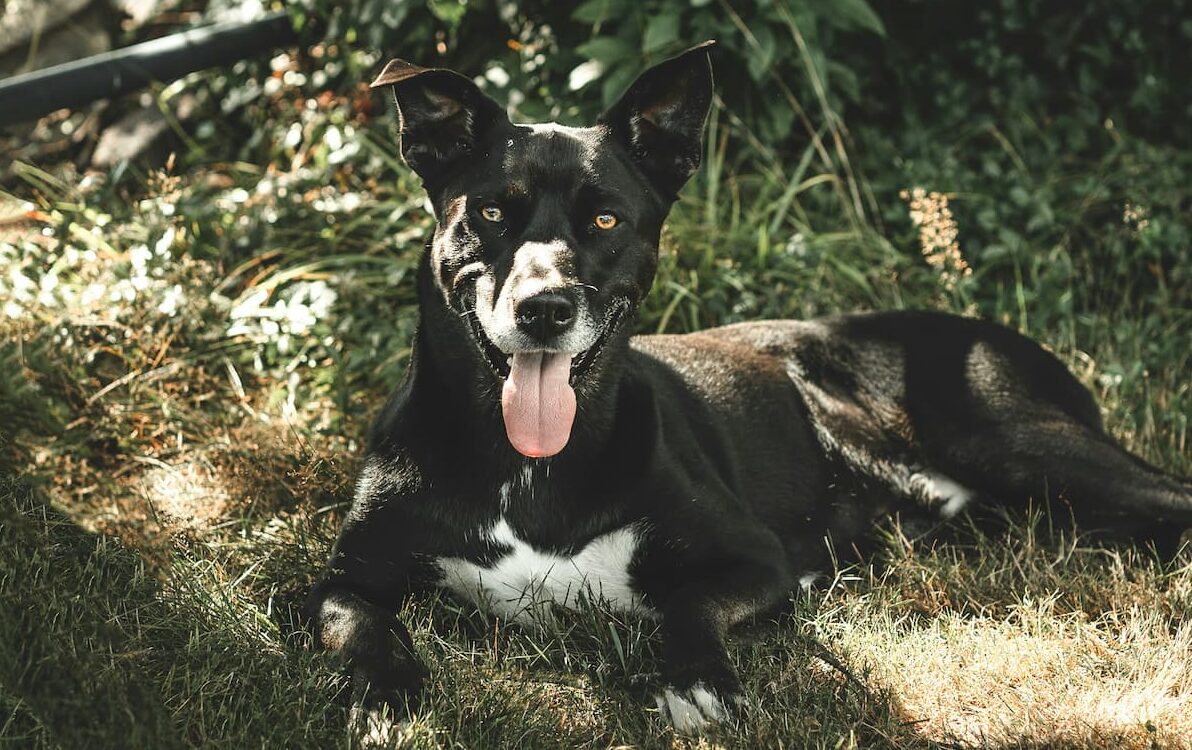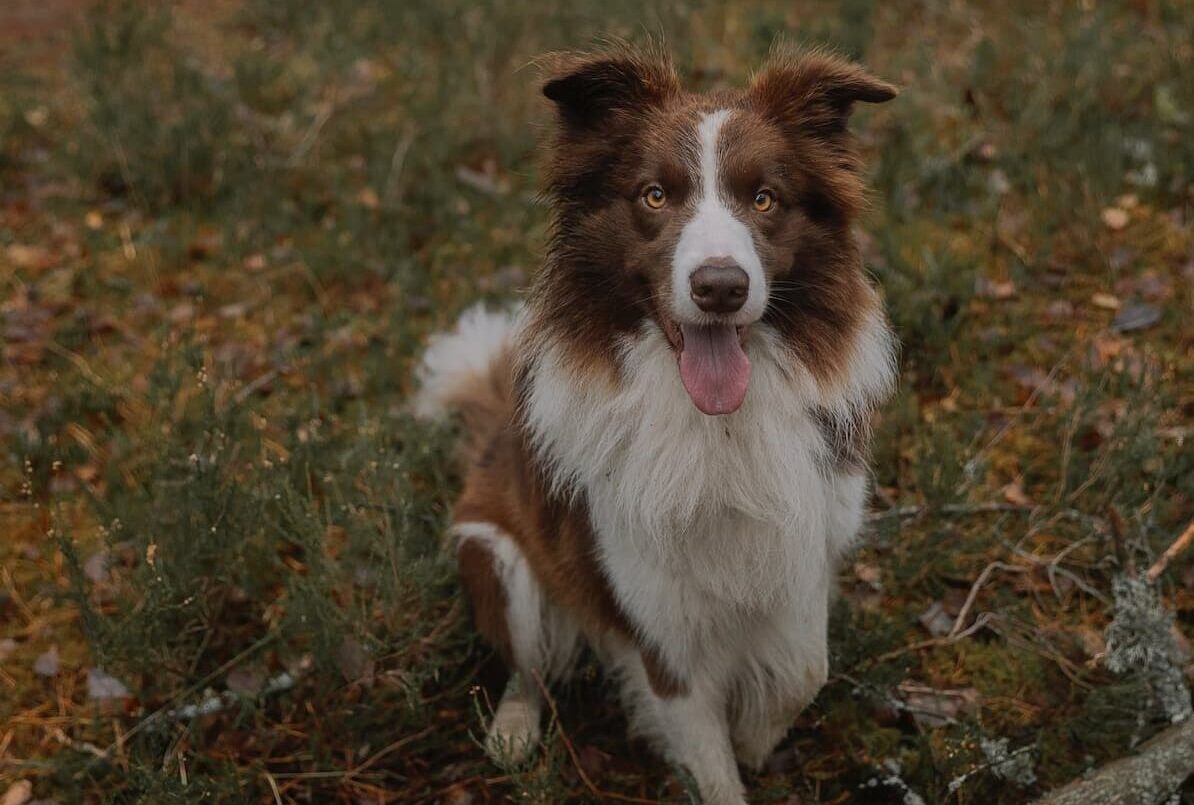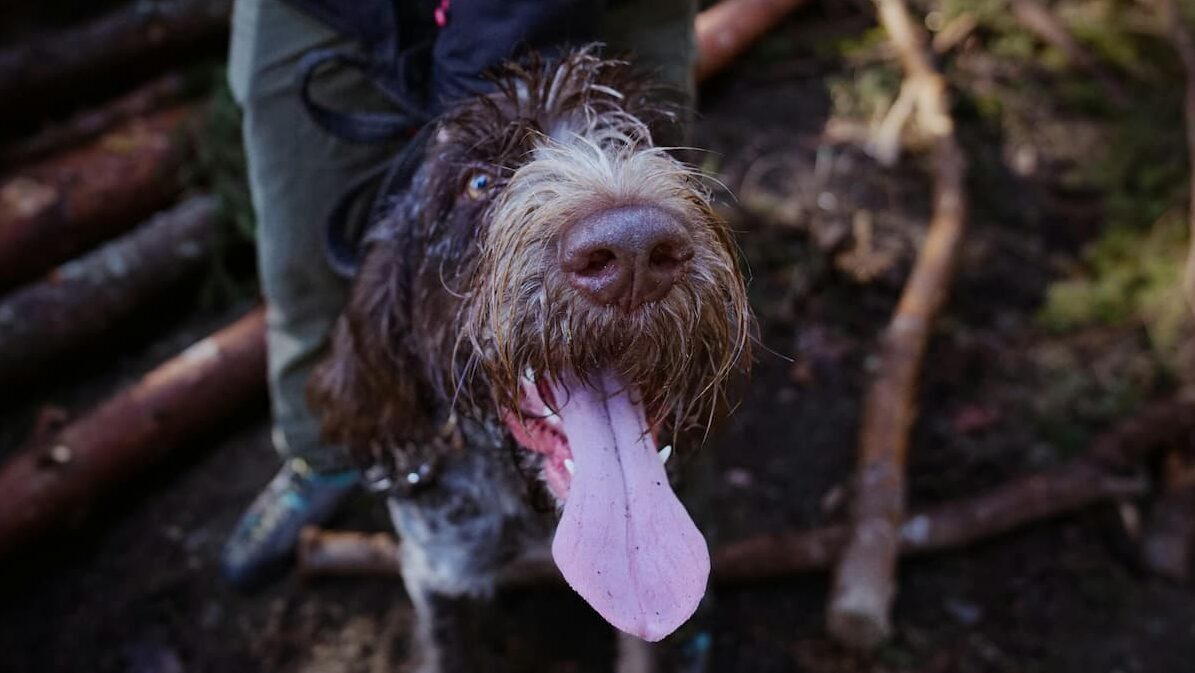Have you ever notice your dog breathing at a dizzying pace after a hard day of exercise?
This article will answer the question: Why do dogs breathe so fast?
Understanding the Physiology Behind Dogs Breathe So Fast
Have you ever wondered why dogs pant and breathe so fast?
It’s quite a sight to see, isn’t it?
Rapid breathing in dogs, commonly known as panting, serves various purposes and can be triggered by a multitude of factors.
Some common reasons your dog may be breathing rapidly include:
Temperature regulation: Dogs don’t have sweat glands like humans do, so they rely on panting as their primary method of cooling down.
When dogs pant, moisture evaporates from their tongue and upper respiratory tract, helping to dissipate heat and regulate their body temperature.
Efficient Exchange of Gases: Unlike us, dogs have a highly efficient respiratory system that allows them to exchange gases more rapidly.
The large surface area of their lungs and a well-developed diaphragm enable dogs to breathe faster and more efficiently, supplying their body with oxygen and eliminating carbon dioxide efficiently.
This is especially crucial during intense physical activities or when they get overheated.
-
- Panting allows dogs to intake larger amounts of air, increasing the oxygen supply to their body.
-
- It helps circulate oxygen-rich blood throughout their system, improving their overall cardiovascular health.
-
- Panting also aids in releasing endorphins, natural chemicals that can help dogs relax and alleviate stress.
Physical Exertion: Just like humans, dogs tend to breathe heavily after engaging in rigorous physical activities.
Whether it’s playing fetch, going for a long run, or chasing squirrels at the park, your pup’s rapid breathing is their way of recovering from the workout.
Stress or anxiety: Dogs can experience stress and anxiety in various situations, such as loud noises, thunderstorms, or visiting the veterinarian.
In these instances, rapid breathing can be a sign of their body’s response to fear or nervousness.
When Fast Breathing Signals an Underlying Medical Issue
Rapid breathing in dogs can be a natural response to exercise or excitement, similar to how humans may pant after a vigorous workout.
However, in some cases, fast breathing can be a sign of an underlying medical issue that requires attention.
One possible cause of rapid breathing in dogs is respiratory problems.
Just like humans, dogs can experience conditions such as asthma, pneumonia, or bronchitis, which can lead to difficulty breathing and increased respiratory rate.
If you notice your furry friend panting excessively or struggling to catch their breath without any apparent reason, it’s essential to consult your veterinarian as soon as possible.
Another potential cause of fast breathing in dogs is anxiety or stress.
Dogs can become anxious due to various reasons, such as thunderstorms, fireworks, or separation anxiety.
When they feel overwhelmed, their respiratory rate may increase, and they may start panting heavily.
It’s crucial to create a calm and secure environment for your furry companion and consider behavioral training or anxiety-relieving techniques to help them relax.
-
- Exercise your dog regularly to release pent-up energy and reduce the likelihood of rapid breathing due to excitement.
-
- Provide a safe and comfortable space for your dog during stressful situations to help alleviate their anxiety.
-
- If your dog’s rapid breathing persists or is accompanied by other concerning symptoms like coughing, lethargy, or loss of appetite, seek veterinary advice promptly.
Another factor that can contribute to rapid breathing in dogs is heatstroke.
Dogs are unable to sweat like humans, so they rely on panting to regulate their body temperature.
If your dog is in a hot environment or has been exposed to excessive heat, and they are breathing rapidly, acting restless, drooling excessively, or showing signs of weakness, it could be a medical emergency.
Heatstroke can be life-threatening, so it’s crucial to seek immediate veterinary assistance.
While waiting for medical help, you can try to cool your dog down by placing wet towels on their body, offering them water, and keeping them in a shaded, well-ventilated area.
FAQ
Q: So, why do dogs breathe faster than humans?
A: Well, our canine friends have a higher respiratory rate compared to us humans for several reasons.
Firstly, dogs have a higher metabolic rate, meaning their bodies work at a faster pace overall.
This increased metabolic rate demands more oxygen, leading to a quicker breathing rate.
Q: How do certain factors like physical exercise affect a dog’s breathing?
A: Just like us, dogs breathe faster when performing physical activities such as running, playing fetch, or going for long walks.
When they exercise, their increased breathing rate helps deliver oxygen to their muscles, providing much-needed energy.
Think of it as their body’s way of making sure their muscles are well supplied!
Q: Does a dog’s size have any impact on its breathing rate?
A: Absolutely!
Dogs come in various sizes, from petite Chihuahuas to majestic Great Danes.
Interestingly, smaller dogs tend to have faster respiration rates compared to larger breeds.
This is because their smaller bodies require more oxygen to support their metabolism, making their tiny lungs work extra hard.
Q: Are there any health-related explanations for fast breathing in dogs?
A: Yes, rapid breathing can also be a sign that something is amiss in a dog’s health.
When dogs are nervous, anxious, or in pain, their breathing rate tends to increase.
Similarly, certain medical conditions such as heart or lung problems can cause dogs to exhibit faster breathing.
If your dog’s breathing appears consistently abnormal or concerning, it’s always a good idea to consult your veterinarian.
Q: Can environmental factors influence a dog’s breathing rate?
A: Absolutely!
Just as we humans adjust our breathing to adapt to the environment, dogs do it too.
If the weather is hot and humid, they may pant to cool down by evaporating moisture on their tongues and respiratory passages.
Panting helps dogs regulate their body temperature, but keep in mind that excessive panting might indicate overheating or distress.
Q: How can we help our panting pups cool down in warm weather?
A: There are a few things you can do to help your furry friend beat the heat.
First and foremost, always make sure they have access to fresh water to stay hydrated.
Providing a cool, shady spot for them to rest is also essential.
If your dog enjoys water, a small pool or a gentle misting of water can help them cool off.
Remember, it’s crucial to never leave your dog in a hot car, as it can be extremely dangerous.
Q: Are there any breathing patterns that could signal an emergency situation?
A: Yes, certain breathing patterns may indicate an emergency.
For instance, if your dog’s breathing becomes extremely rapid and shallow, or they start gasping for air, it could signify a serious problem.
In these cases, you should seek immediate veterinary care to ensure the well-being of your furry friend.
Q: In conclusion, is it normal for dogs to breathe quickly?
A: Yes, it’s perfectly normal for dogs to have a faster breathing rate than humans.
Remember, their bodies are designed differently, and their increased metabolic rate demands higher oxygen intake.
However, it’s always a good idea to be aware of any changes in your dog’s breathing patterns and consult a veterinarian if you have any concerns.
Keep an eye on your furry friend and appreciate the amazing mechanisms that allow them to be the energetic beings we adore!
To Sum It Up
Although it may seem a little perplexing at first, dogs have evolved to breathe rapidly for a multitude of fabulous reasons.
Whether it’s cooling down their bodies after an intense game of fetch, or simply expressing their boundless enthusiasm during a belly rub session, these four-legged companions know how to keep their respiratory system in top shape.
Next time you notice your pooch panting away, remember: it’s perfectly normal!
In fact, you now have a deeper appreciation for their incredible ability to navigate the world through their sense of smell and their efficient heat regulation.
So, don’t worry if your furry buddy’s respiratory rate seems faster than a cheetah’s sprint; it’s all part of their amazing canine nature!
So, let’s give a round of puppy applause to our beloved dogs for their remarkable ability to take our breath away with their quick and rhythmic breathing.
After all, their panting is simply one more reason to cherish these lovable creatures who fill our lives with endless joy, laughter, and an occasional face full of slobbery kisses.












